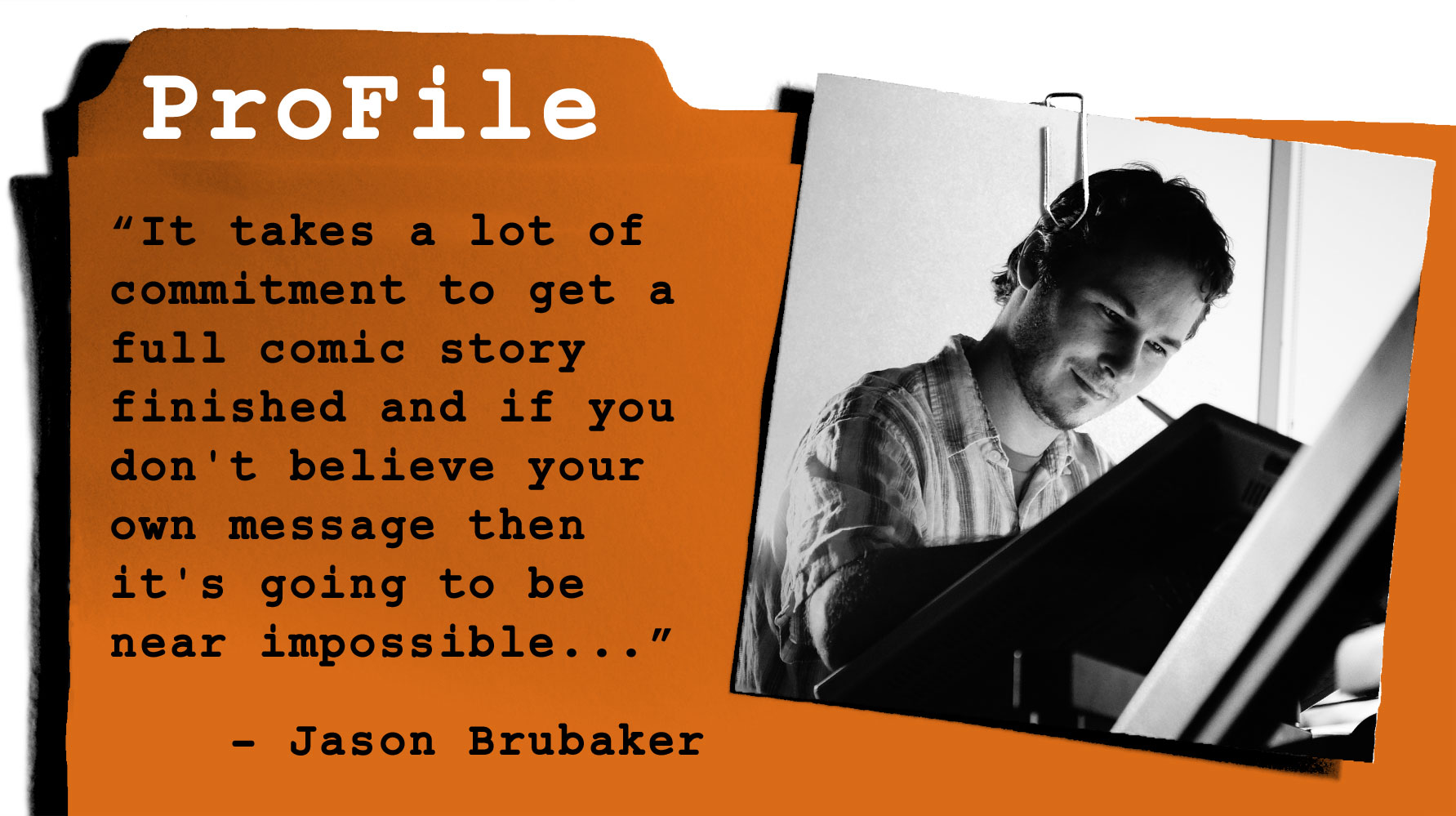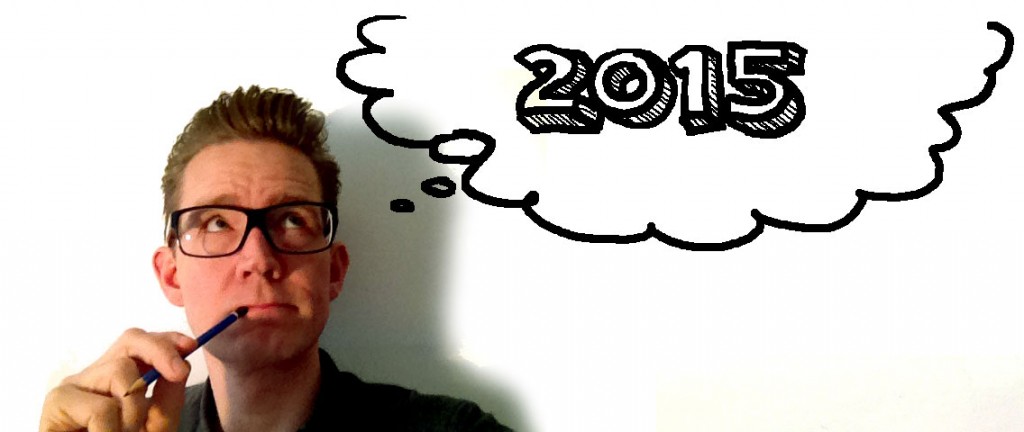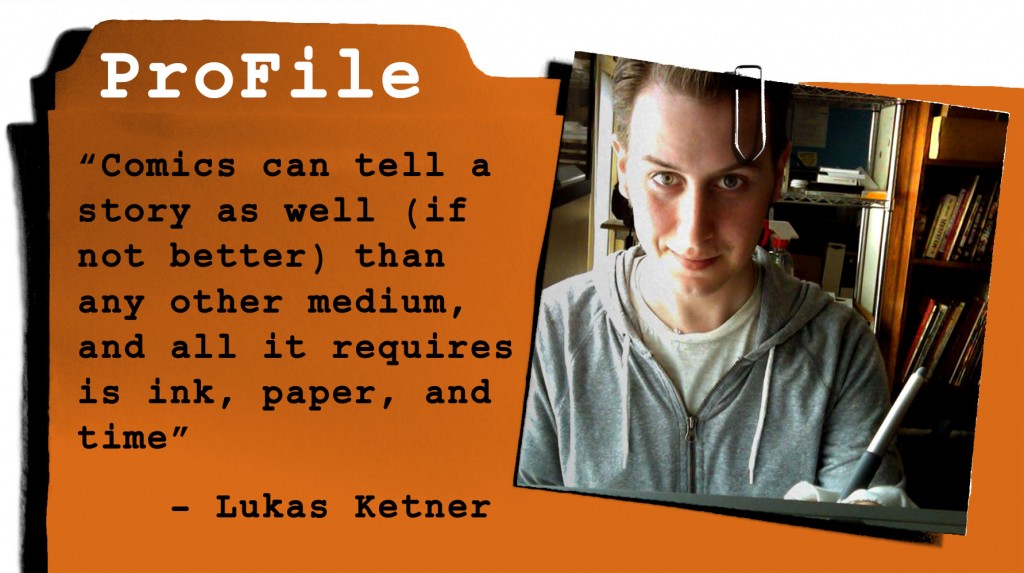If you thought I was lying on a beach somewhere, you are thoroughly mistaken! Here’s part of what I’ve been up to this past year or so. Probably the busiest time of my life ever – and still is. Watch the video to find out why.
pro tips
What’s my motivation – Comics for Beginners podcast episode 31
Why is it sometimes so hard to keep a schedule when creating content for the web? And how can we set a system in place to circumvent our fleeting motivation? That’s what I try to answer in this episode.
ProFile: Lukas Ketner
Lukas Ketner is the artist and co-creator of Witch Doctor, the hit launch title for Robert Kirkman’s Skybound imprint at Image Comics. He was a 2009 nominee for the Russ Manning Award for his Witch Doctor work, which has earned praise from fans and creators alike. Other work includes stories for Dark Horse Comics’ Creepy Comics and Supersized: Strange Tales From a Fast-Food Culture, along with covers for BOOM! Studios’ Hellraiser title. He has twice won entry into the Communication Arts Illustration Annual for his album artwork. He survived a successful full-body transplant from his hometown in Anchorage, AK to Portland, OR in 2000 where he currently resides. You can check out his work and drop him a line on Facebook.
What made you decide to work in the medium of comics?
For me, it was the realization that I could tell stories as well, if not better than prose and film — both of which I tried my hand at, and NO you may not see the results, they’re awful 😉 For me, comics can tell a story as well (if not better) than any other medium, and all it requires is ink, paper, and time. Sure, money helps, but that’s an obstacle that’s easier to overcome in the digital age to reach an audience.
What part of the process is the most challenging or frustrating to you?
Well, challenging and frustrating aren’t always the same thing, although they do overlap quite a bit 😉 For me story flow and lining up shots is very challenging and non-intuitive for me, but very fun and rewarding, much like solving a puzzle. It’s frustrating when I’m inking that same page and I can’t do it fast enough because I’ve added detail to areas that don’t need as much attention as I’ve given them. Then, that elegant puzzle I solved previously turns into a 2-3 day grind that’s totally unnecessary— comics pages shouldn’t take that long for a monthly horror book. It’s a mistake that I’m slowly making less and less, but it still happens. I really admire artists whose styles are more economical, but still great to look at. My studio-mates Jonathan Case and Steve Leiber come to mind, along with Sean Murphy. Murphy does have a very detailed style, but you’ll notice it’s rarely more detail than necessary to make the image really sing.
If you could give one piece of advice to an aspiring comics creator, what would that be?
A rule I learned in design school, “Very Little, Very Well Done.” If you’re trying to get noticed, do a “done-in-one”, the comics equivalent of a short film. Make it one issue tops to start with, and NO cliffhangers. It’s got to be a full story, start to finish, no “prologues” or “to be continued”. That doesn’t mean it can’t take place in a world that you’d like to explore further in the future, but it needs a satisfying conclusion, and maybe a hint that there’s more story to tell (if that’s relevant). Print it up! Put it online for free. Put it everywhere that people can see it. You can sell it at shows to try to recoup some expenses, but don’t expect to make a profit. It’s proof that you can do the work and do it well; that’s what’s important. Get some interest behind you, and as much feedback as you can possibly get from editors and other successful creators. Maybe do another, again, done-in-one applying what you’ve learned. Why such small bites? Because you don’t want your first work to be a 12-issue epic, and then find out via feedback that you’re doing it wrong story-wise after you’ve put out two issues of hard work, and editors need to see that you can complete a story in a satisfying manner. I guess that’s a bit long for ‘one piece of advice’, but there it is 🙂
Drawing for a Living – Podcast episode 29
Inspired by an article Molly Crappable wrote on freelance life, I sat down and had a discussion with myself about what it takes to survive as a one-man army. If you’re a struggling freelancer or considering becoming one, this episode is for you!
Molly Crabapple’s 15 rules for creative success in the Internet age
ProFile: Jason Brubaker
 Jason Brubaker began his career in graphic novels in 2011 with the Xeric Award winning reMIND which also got on the Great Graphic Novels for Teens list 2012. In 2014 he quit his full-time job as a Visual Development artist at Dreamworks Animation to pursue publishing his own comics. You can support Jason’s work here: patreon.com/jasonbrubaker
Jason Brubaker began his career in graphic novels in 2011 with the Xeric Award winning reMIND which also got on the Great Graphic Novels for Teens list 2012. In 2014 he quit his full-time job as a Visual Development artist at Dreamworks Animation to pursue publishing his own comics. You can support Jason’s work here: patreon.com/jasonbrubaker
What made you decide to work in the medium of comics?
What part of the process is the most challenging or frustrating to you?
If you could give one piece of advice to an aspiring comics creator, what would that be?
5 Ideas for New Year’s Resolutions
 The great thing about the new year is it’s a chance to get some perspective and stop and think for a moment. Look back on the year that went by too quickly and evaluate. What worked and what would you like to change for the new year?
The great thing about the new year is it’s a chance to get some perspective and stop and think for a moment. Look back on the year that went by too quickly and evaluate. What worked and what would you like to change for the new year?
Rather than making some grand resolution like “draw 2 pages every day”, try setting small, achievable goals that build a habit. As my friend Kody Chamberlain put it:
I’ve found that small ongoing adjustments are more effective than attempting a major and sudden change. Try that if you need a resolution.
I’ve made a habit of doing resolutions, not because december 31st is the only day you can make changes and take action – you can do that every day – but because people tend to ask me. And having to answer a question is a good excuse to think.
Maybe you’ve already made a plan for 2015 but in case you’re not sure, here are 5 ideas for New Year resolutions for artists and other creatives:
1: Spend an hour every week cleaning up the clutter around your drawing board and/or office. It’s really easy to get behind on simple things like these, and eventually it can bog down your workflow, having to look for tools or references or just having to work in a mess. Clearing physical clutter cleans out mental clutter as well.
2: Take at least one coffee meeting every month with someone you admire. This could be another artist, a writer or someone completely outside your industry. Someone you have a gut feeling there’s something to learn from. Prepare a few questions but try to be open and curious. Ask about their struggles, their strategies and their workflow.
3: Take a walk every day. Clear your head and get some movement into your joints. As artists and writers, we spend a lot of time sitting down and that hurts our bodies. You don’t have to go to the gym, just walking or doing 15 minutes of exercises and back stretching can really make a diffference.
4: Get in the habit of asking yourself: Is this helpful? Whenever you’re asked to do something, evaluate if it’s helpful for your overall goal, whatever that is. And every time you get angsty, depressed or start to worry about your story, your craft or if people will like you, stop and think for a moment: Is this helpful? If the mood or your worrying is not helping you produce better art, stop it. Do something helpful instead, like sitting down and getting the work done.
5: Quit one of your social media platforms. I know this one hurts. But think of the many hours a week you’re spending clicking links from Facebook, scrolling your Twitter feed or liking pictures of art (or cats!) on Instagram. You don’t have to shut down your account, just consider removing the app from your phone or simply don’t go in. We see it as a deserved break in our routine but more often than not, it’s a huge time suck. You’re better off looking out the window for 5 minutes and clearing your head.
This year my personal resolution is to spend the first hour of my work day, EVERY work day, on my own business. Whether that’s this site, my own comics or that novel I’m working on. Every day I come in to work, I don’t answer the phone or check my email or put out that brush fire. It can wait an hour, surely.
I also believe in the power of commitment, of accountability. So now that I have told you, I guess I have to keep my promise to myself, right?
What’s your resolution? Please share! Maybe there’s an idea someone else can stael to make their 2015 the most productive and epic creative year ever.
